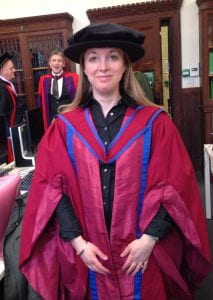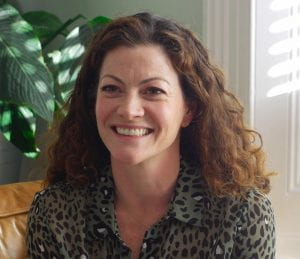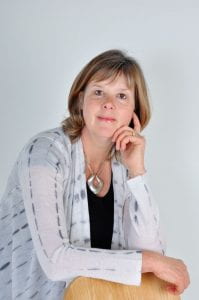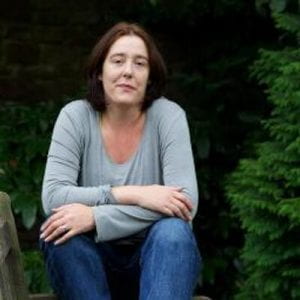
As part of our #BristolUniWomen campaign to mark International Women’s Day 2021, we’re meeting women from across the University of Bristol community who have been using their expertise to tackle the pandemic, from carrying out world-class research to helping on the frontline of the NHS.
Dr Saffron Karlsen is an Associate Professor in Sociology. She’s been look at the social and economic reasons behind the big ethnic differences in COVID-19 infections and deaths.
Your research has focussed on health inequities. Could you tell us a little more about how this relates to Covid-19?
My work looks specifically at the reasons why there are differences in the health experiences of different ethnic and religious groups. This has been very relevant given the big ethnic differences in Covid-19 infections and deaths we’ve seen in the UK.
My research focuses on the ways in which these problems are caused by things we do as a society, not as individuals. Negative stereotypes about people, in particular ethnic and religious groups, mean that they can be excluded from opportunities to get a good education, a good job, a good house, good healthcare. This disadvantage increases the risk of infection and also of developing conditions like diabetes and respiratory illness – all important for covid-19 outcomes. It also means people don’t have the resources to fight infection when they do get ill, or don’t get the care they need, meaning they’re more likely to die.
Racism can also make people feel excluded or stressed – leading to mental ill-health and heart disease. Our research also shows how racism has directly affected people’s experience of lockdown and ability to manage it. The additional stress and isolation for people who felt the government wasn’t interested in protecting people ‘like them’, has encouraged distrust in government policies. We’re seeing that legacy now around the vaccine.
Media and government discussion often suggests that the solution to these inequalities lies in changing the biologies or attitudes of people in particular ethnic minority groups. My research shows that actually the responsibility for solving these problems lies with our whole society.
What have been the biggest challenges or triumphs for you during the pandemic?
The public reaction to these ethnic inequalities and George Floyd’s death was quite spectacular. After 20 years, it has been brilliant to finally be having these conversations so openly. There has been a real hope for positive, lasting change. I’ve been very pleased to be able to encourage this momentum – across the world’s media, through the government and also with initiatives closer to home. My work as part of the Bristol Race Equality Network (with Black South West Network) to ensure people get the information they need to effectively address ethnic inequalities has taken on new significance. The focus on Bristol and Colston led to important initiatives in the University to look at our own particular history, which started the grassroots decoloniseUoB group which now has over 400 staff and student members. And one of our papers on ethnic socioeconomic inequalities, which supported conversations around #BlackLivesMatter this summer, has just been nominated for an award for excellence, which is great.
But, this was also a very intense period. Responding to these opportunities, while trying to do our research, manage the rapidly changing demands of academic teaching, as well as home schooling etc, was relentless. It took its toll on me personally and on many others in the University and I fear there will be more very difficult times ahead.
What is it like being a woman in academia? Have there been times when you have either faced inequality or had to challenge it?
I think I’ve been very lucky and things have worked out pretty well. I’ve always been surrounded by supportive and enthusiastic colleagues and have had many valuable opportunities in my work. Academia is extremely demanding – it’s a vocation not a job. There are incredible pressures on people to work literally all the time. That can be particularly hard to manage in a society where so much of the other work still supposedly falls to women. Academia, and society more generally, are still not doing enough to recognise the implications of this, or the opportunities offered by working in different ways. But I have a very supportive partner and we are a team. Without that, things would’ve been very different.
Which women have inspired you in your career?
I have been inspired by many strong women, in many different ways. In terms of my career, I had a brilliant English teacher at school who was the first person I met who had a real-life PhD and opened my eyes to the fact that you could be a doctor without touching any blood! My mum – sociologist, socialist, teacher, advocate, creative, all-round superhero.
I’ve spent my lockdowns catching up with some of the people who helped set the path so many of us now walk together – bell hooks, Angela Davies, Audre Lorde, Judith Butler (although they’re non-binary but until they have their own day…..).
Many of the women I find inspiring, I’ve only met quite recently. Sado Jirde from Black South West Network, Cllr Asher Craig, Bristol’s Deputy Mayor, Alex Raikes from SARI, Hibo Mahamoud from Talo, Kalpna Woolf from 91 Ways and Aisha Thomas from Representation Matters, together with their friends and colleagues across Bristol and beyond. An absolute and somewhat-terrifying force for positive change. And Khadija Meghrawi, UoB BME Students’ Officer (amongst other things). Watch out world. She’s just getting started!
What advice would you give to your 13-year-old self?
To dream big, be brave and have confidence in your capacity. Remember that life works in mysterious ways, and sometimes a convoluted route is best.
What are you most proud of?
I have many things I’m proud of. I’m proud of my contribution to raising our own strong, confident girls – already blazing their own trails. I’m proud to support my students realise their commitment to changing the world. I’m proud to feel that I’ve made a personal contribution to drawing attention to and actually undoing some of the ways in which race and other ‘isms’ impact on the lives of marginalised groups in the UK and elsewhere. I’ve been able to amplify the voices of people who felt unheard and that has been amazing.



